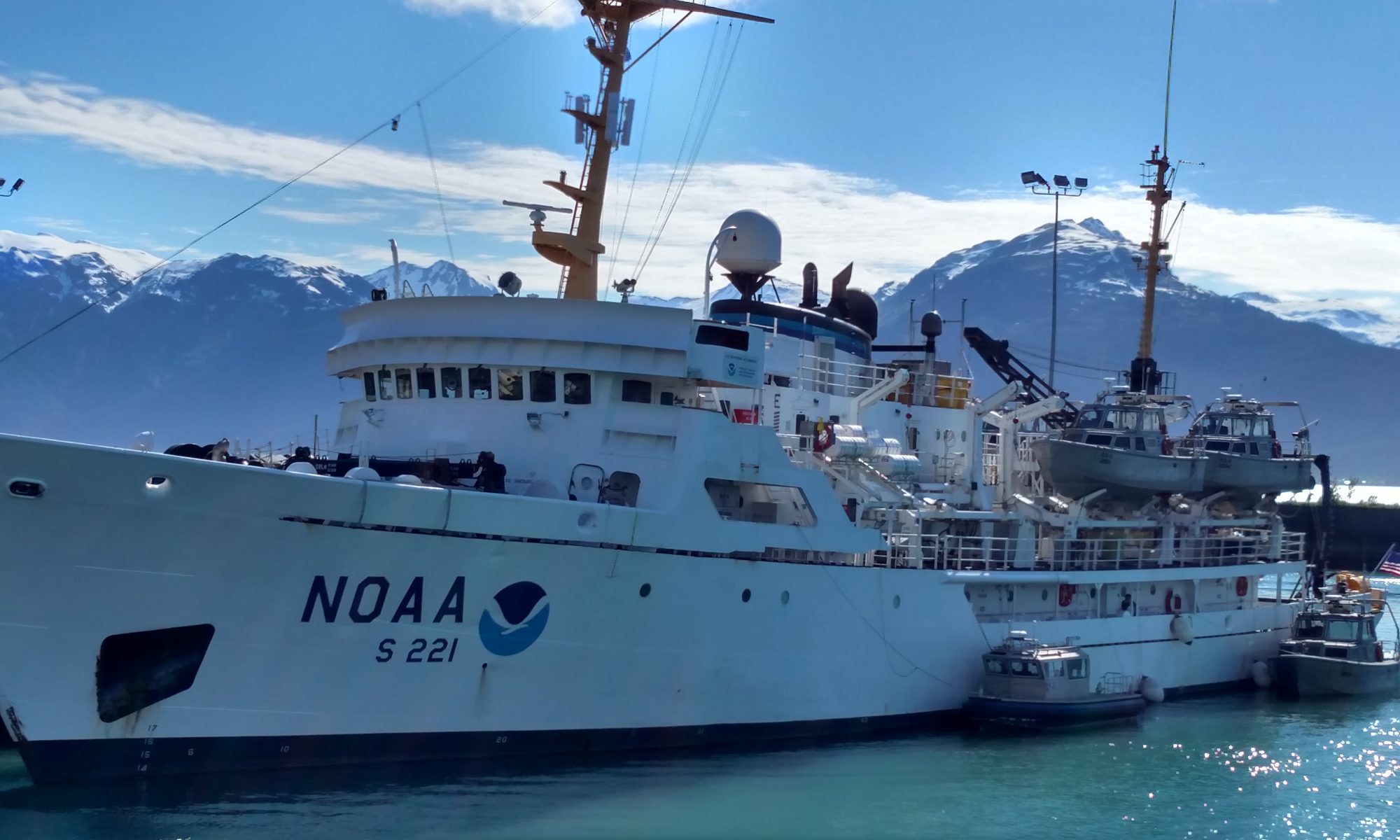NOAA Teacher at Sea
Steven Frantz
Aboard NOAA Ship Oregon II
July 27 – August 8, 2012
Mission: Longline Shark Tagging Survey
Geographic area of cruise: Gulf of Mexico and Atlantic off the east coat of Florida.
Date: July 26, 2012
Personal Log
A DAY’S DELAY
The Oregon II was supposed to leave Pascagoula, Mississippi on Thursday, July 26, 2012. However, a momentous event occurred which delayed our departure by one day. This upcoming mission just so happened to be the Oregon II’s 300th mission. Thursday was set aside as a day to celebrate this milestone. NOAA employees, media, and public alike joined to reminisce the past and look toward the future. The very first Teacher at Sea sailed upon the Oregon II. Now it is my turn. I am humbled to think of all the great teachers who have gone before me and am honored to now be following in their footsteps.


The day’s delay afforded me the opportunity to see some of the land operations NOAA conducts and a little bit that the Pascagoula area has to offer.
First stop was the NOAA lab. This building was just opened in 2009 as the former lab was destroyed during Hurricane Katrina. After checking in we saw office upon office of researchers working on their projects.

Alex Fogg was working in the lab. He was busy studying the stomach contents of lionfish. Lionfish were released around the Florida Keys several years ago. Having no predators, this invasive species has been reproducing at an alarming rate. Listen to Alex tell about his research.
NOAA also has an educational outreach program. Earlier in the morning a group of four year olds visited and learned how a Turtle Excluder Device (TED) works. TED’s are required to be installed on shrimp nets. Before the advent of TED’s, when a sea turtle was caught in a shrimp net, it usually drowned before the net was hauled up. Now, when a sea turtle gets caught in a net, it travels through the net until it gets to the TED. The TED looks like bars on a jail cell. The smaller shrimp can pass through, but the sea turtle gets pushed up and out through an opening in the net.

The Pascagoula area is known for food: barbecue and seafood. The Shed is a famous outdoor barbecue restaurant, which has been featured on TV. I couldn’t decide what to order, so the sampler, with a little bit of everything fit the bill. A “little bit” has an entirely different meaning here than it does in Ohio. This was a huge meal of ribs, wings, and brisket. It also came with sides of collard greens, macaroni and cheese, and baked beans. There were plenty of leftovers for the next day!
It was also interesting that even though it was very hot and humid and the The Shed was outdoors, it did not feel hot at all. Swamp coolers were installed around the perimeter of the restaurant. What is a swamp cooler? I’ll leave it to you to find out!
Pascagoula, Mississippi is a port town with a rich history. Because of its close affiliations with everything nautical, they use nautical flags in their town logo. See if you can spell out P-A-S-C-A-G-O-U-L-A in the arch of flags. Then, see if you can spell out your own name!


There you have it! One long hot day of good food, celebration, and the wonderful people of Pascagoula, Mississippi. Tomorrow we set sail to find sharks! We have to travel three days at sea to get out of the Gulf of Mexico, around Florida, then to the Atlantic Ocean.

